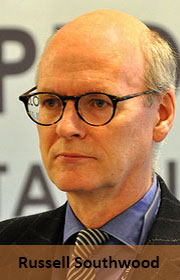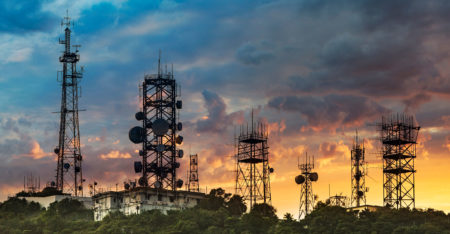 For more than a year, I have been saying to anyone that will listen that long-term evolution and video will be a game changer in Africa. The logic for arguing this case was based on the fact that YouTube was in the top five of every country measured by Alexa, despite poor Internet access speeds. You only had to imagine the demand if you took away the speed constraint.
For more than a year, I have been saying to anyone that will listen that long-term evolution and video will be a game changer in Africa. The logic for arguing this case was based on the fact that YouTube was in the top five of every country measured by Alexa, despite poor Internet access speeds. You only had to imagine the demand if you took away the speed constraint.
I’ve been about a week in Kampala in Uganda with a Mi-Fi device supplied by Smile Telecoms. The device allows me to run my smartphone, laptop and iPad using a shared data connection. This means none of that irritation of some hotels charging me more for each connected device in that rather grasping way I’ve come to associate with some African hotel Wi-Fi.
The Mi-Fi is about the size of an iPod and creates its own Wi-Fi hotspot. You turn it on and pop it in your pocket, and you have Wi-Fi wherever there’s mobile coverage. My driver and I couldn’t find a particular address. Whip out the iPad and there’s the little blue dot on Google maps guiding us in. You can’t do this with data roaming because you’d need a financial facility underwritten by three Wall Street banks to pay for it. It works indoors or outdoors, which is not something every WiMax vendor could say with confidence.
But the real kicker is that when you use video, it starts playing straight away and runs all the way through to the end. Yes, that’s how online video’s meant to behave and, once someone start’s showing off that Chameleone video on their phone, everyone of a certain age is going to want it, too.
Before Christmas, I wrote of a conversation with an international bandwidth provider who was saying that within a relatively short space of time, corporate customers would experience the same bandwidth environment as users have in the US and Europe. For the first time, I’ve actually had a bandwidth speed in Africa that was the same (and at times faster) than my home fixed broadband connection in the UK. Yes, it can be done for household and individual customers as well.
Smile is a challenger Internet service provider with tens of thousands of subscribers, not a mobile operator with millions. There are 1,5m data users in Uganda and Smile has barely touched the surface. Its data network has been built from scratch and is used only for data. It’s not several levels of alphanumeric soup (3G, HSDPA) strapped together and finding its way through an underpowered network that was originally designed for voice, not data. In Uganda, both Orange (which has a good reputation for data) and MTN (which does not) are offering LTE, but I didn’t meet anyone with an LTE data connection or LTE mobile handset from either operator.
This gap, and the mobile operators’ lack of access to the right spectrum, offers an intriguing opportunity for insurgent challengers. They’re doing what WiMax kept promising, but never delivered. Currently, Smile has covered the greater Kampala area and all the way down to the airport at Entebbe. It will be available 15 different regions this year.
LTE routers are still not cheap, but prices are falling. Smile sells them with 5GB of data for about US$96 and. The only drawback is they eat battery like a smartphone.

Fiona McGloin, Smile’s country manager for Uganda and Tanzania, says that at 250MB/day, average use is stronger than expected. YouTube is popular, and the network’s power users tend to have a lot Apple devices or are expatriates streaming TV from their home countries. The latest Apple iPad is capable of using the 800MHz spectrum that Smile has access to. Tablet growth in Uganda is strong.
Customers — Smile won’t say how many there are — are a mix of companies, individuals and high-income households.
Bandwidth is sold in bundles, and individuals tend to find themselves using more at first, and then throttling back their consumption. Prices vary from $10 for 500MB to $211 for 500GB and have been designed to reflect existing 3G prices. Selling capacity in this way (which is common across all of the industry) still smacks of rationing, but that will change as prices cascade as inevitably they will.
The challenge for the legacy mobile operators is how they keep up with the implications of this new bandwidth horizon. The challenge for the insurgent challengers is to prove that they can break out of being eternal corporate service providers and actually capture hundreds of thousands of customers.
- Russell Southwood is head of Balancing Act Africa




